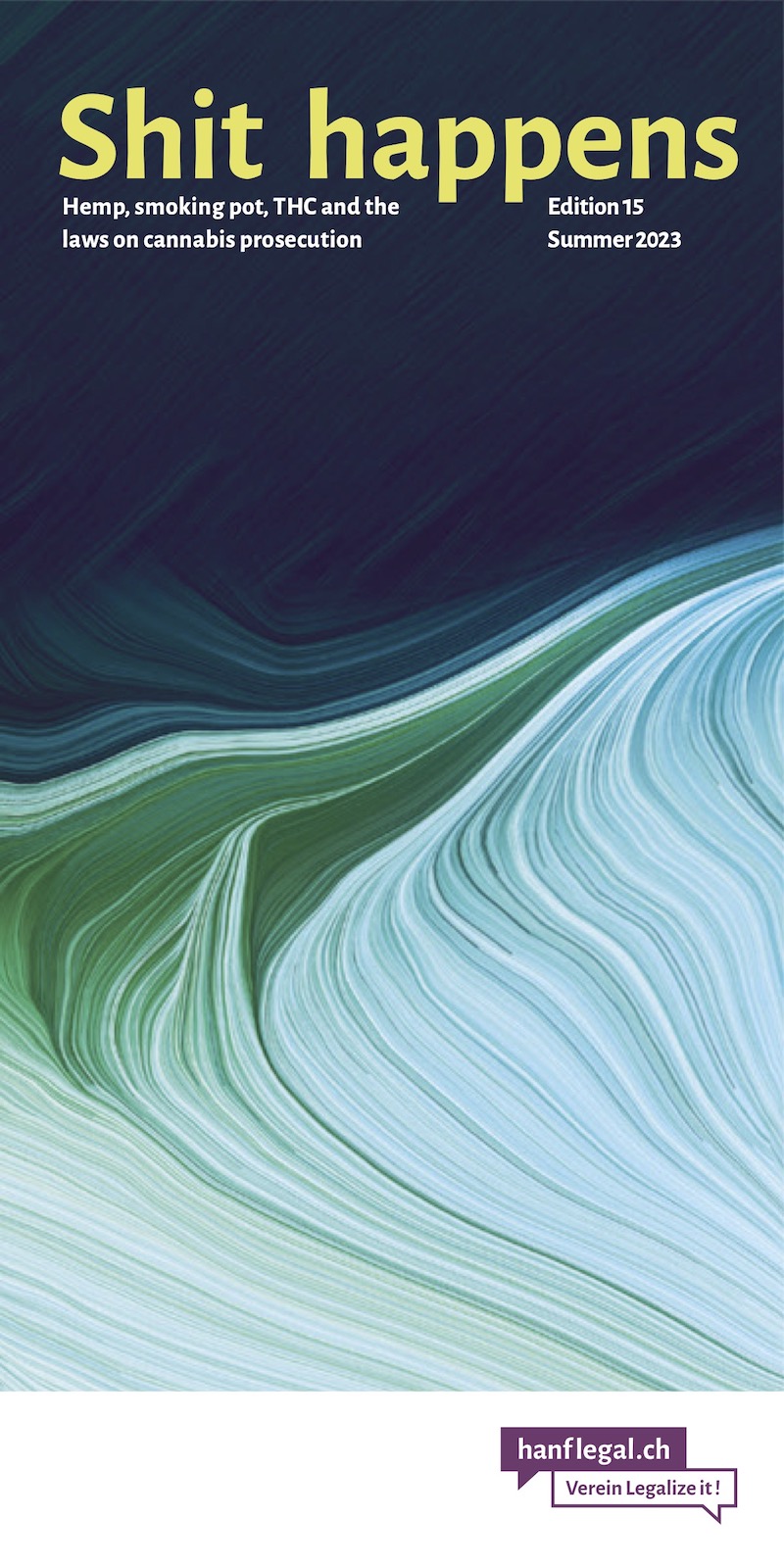- THC & Law:
Talk is lead, silence is gold
The protocol is absolutely central
If the police find hashish and/or weed (i.e. illegal narcotics) on you or if they catch you smoking pot, they will make a report. You can find an example of such a protocol on page 5. In the different cantons, these standard protocols look different, but the content is very similar. Of course, only a few of these questions can be asked, but the pattern and the idea behind it are the same everywhere: Everything you admit (consumption, possession, purchase, passing on, etc.) can be added up (in the case of acts of consumption, which are contraventions, the last three years, in the case of passing on and dealing, seven years in minor cases and 15 years in serious cases).
Then you will be sentenced for x-fold violation of the narcotics law. That goes fast into the money. Therefore: Silence is usually the best thing you can do. You are allowed to lie - and it is rather unlikely that they will check your statements by means of house search, search of your workplace or school cupboard, urine samples and the like (they usually don't have time for that). But lying is exhausting (contradictions!) and if you ever blab, they won't believe anything you say. Most of the time they are offended, which does not help you.
The protocol can be filled out immediately or the police will take you to the station. Everything you sign is admitted by you. So if you sign the police protocol, this protocol is your statement. On the basis of it you will be convicted. If there is something wrong on the protocol, refuse to sign it until your requests for changes are noted on the protocol.
Never admit more than absolutely necessary
Basically: talk is lead, silence is gold. Police officers also learn in their training that they do not talk to the investigating authorities when they are charged with misconduct. They abide by this. We THC-users should abide by it as well.
If you can't handle the psychological pressure during the questioning (which, by the way, is not a shame, but a pity, because all the threats like “we're going to keep you here now until you talk” or “everything will only get worse if you don't finally come clean now” and the like are practically never followed through in consumption cases), talk as little or as nothing as possible. We have put together a few tips for this here. In general, however, the following applies: Try to remain silent! You can express this clearly with the following sentence: “I will not make a statement on this question.
Talk is lead and silence is gold
The narcotics law is a very harsh law. If you are found guilty of an offense against the Narcotics Law, the penalty is severe! However, the judge has a great deal of discretion in sentencing. Both downward and upward. Your testimony is, next to the found material, the most important evidence for your punishment. So do not make it too easy for them.
Also keep in mind: everything you admit in a trial is on the record afterwards. In addition to a higher (narcotics-related) penalty, other authorities may also rely on your statements. For example, the road traffic authorities may want to check your fitness to drive if, for example, you have only confessed to regular consumption of THC products! So talking has different consequences - silence is more exhausting, it takes longer with the police, but in the end you drive better that way.
The mouth is for smoking pot, not for talking.
Support our work with a donation:
Bank transfer
Account number (IBAN):
CH02 0900 0000 8709 1354 3
Full account details
Or scan this QR code with your eBanking App (ZKB, Revolut, Postfinance, …):

Or open/share the QR code as PDF file with your eBanking App.
Credit card
Donate via credit card
Verein Legalize it!
Quellenstrasse 25
8005 Zürich
Threema ID 7NH65RBY
Don’t miss anything! Follow us on social media:

